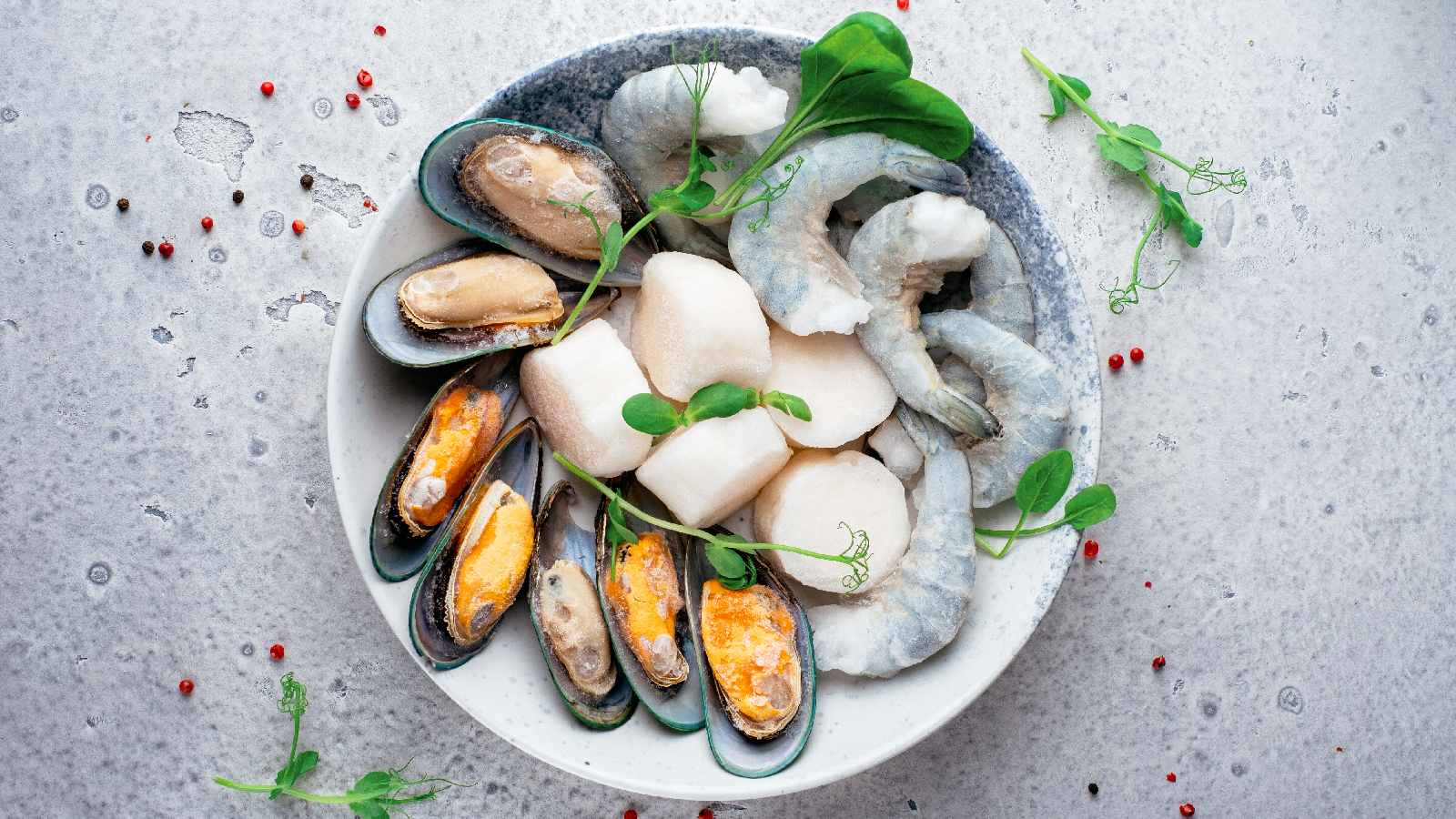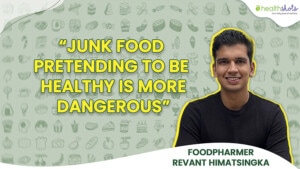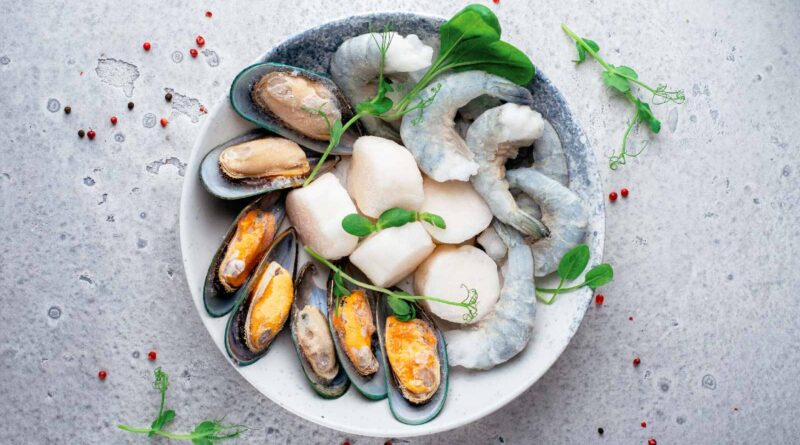Pescatarian diet can increase longevity! Find out what to eat on a pesco-vegetarian diet
The pescetarian or pesco-vegetarian diet is the latest trend in the fitness world. From what foods to eat and avoid to its benefits to its side effects, find out whether its fad or fab.
If you are keeping up with the latest food trends, the latest to climb the ladder is the pescetarian diet. A recent study says that this diet can increase life expectancy by reducing the risk of disease among the elderly. Also known as a pesco-vegetarian diet, this is a vegetarian diet, except you can eat fish too! This diet is a sustainable choice for those looking for a balanced diet. It is a good combination of vegetables and protein-rich foods. It allows you to stay healthy and bring balance to your plate with salmon strips, fruits, vegetables, beans, whole grains and more. Learn about the health benefits of a pescetarian diet and how you can incorporate it into your diet.
What is a pescetarian diet?
The term pescetarian was coined in the early 1990s. It is a combination of two words: Pesce, the Italian word for fish and vegetables. According to a study published in the journal JAMA Internal Medicine, this diet falls under the category of non-vegetarians and is called the pesco-vegetarian diet.
Simply put, a pesco-vegetable diet is a type of vegetarian diet that includes fish and other seafood but excludes meat from wild animals such as beef, pork and chicken, explains the expert. of food Dr Archana Batra. “It mainly includes plant-based foods such as fruits, vegetables, whole grains, beans, nuts and seeds, as well as dairy and eggs, depending on the individual’s preferences. These foods are often chosen by those who want to reduce their consumption of they eat meat but they still want to get protein and nutrients from animals from seafood,” he adds.

8 benefits of a pescetarian diet
Eating a pesco-vegetarian diet offers many health benefits, including:
1. Promotes heart health
A pescetarian diet usually includes fatty fish such as salmon, mackerel and sardines, all of which are high in Omega-3 fatty acids. Dr Batra says that foods containing omega-3 fatty acids help reduce inflammation, lower blood pressure, and reduce the risk of heart disease. A study published in the British Medical Journal (BMJ) found that eating a pescetarian diet can reduce the risk of ischemic heart disease as well. These foods are also believed to reduce cholesterol levels, which are a risk factor for heart disease. A study in the British Journal of Nutrition found a significant improvement in the cholesterol levels of people following a pescetarian diet.
You can also like


2. Increases longevity
Following a pescetarian diet can help you live longer. A recent study published in The American Journal of Clinical Nutrition studied 88,400 participants and found a link between a vegetarian diet and longevity. Pesco-vegetables had a lower risk of death in the elderly compared to non-vegetarians.
3. Promotes brain health
The Pesco-Vegetarian diet is rich in fish, which contains omega-3 fatty acids, which are considered good for your brain health. Acids from fish, especially DHA and EPA, play an important role in improving mental and brain health, according to a study published in Advances in Nutrition. Experts say that following this diet can reduce the risk of neurodegenerative diseases such as Alzheimer’s. It is also believed to improve your mood and mental health.
4. Aids loss
When trying to lose weight, it is important to watch what you eat and following a pescetarian diet can help! These foods “are high in protein from fish and fiber from plant-based foods, which can help promote satiety and help you manage your weight. The combination of these nutrients can help reduce consumption of overall calories by keeping you fuller longer,” explains the nutritionist. Eating foods high in protein and fiber can help promote weight loss and maintain good health of metabolism, found in a study published in the Journal of Nutrition.
5. It reduces the risk of diabetes
More than 38.4 million people of all ages will have diabetes in 2021, and the number is expected to increase in the future, according to data from the National Institutes of Health (NIH). Following healthy habits, including a healthy diet, can help you manage diabetes. A study published in the journal Diabetes Care found that a pesco-vegetable diet can help protect against type 2 diabetes and control blood sugar levels.
6. Good for digestion
Eating a diet rich in fruits, vegetables, whole grains and legumes promotes a good digestive system as it ensures the consumption of sufficient fiber needed for a healthy gut, avers Dr Batra. Dietary fiber found in whole grains, fruits and vegetables can help improve digestion and normalize bowel movements by fighting irritable bowel syndrome (IBS), according to a study published in the journal Nutrients. .
7. Strengthens bones
Antibacterial foods can be good for bone health because they include fish and seafood, which are good sources of protein and calcium. Eating a diet rich in calcium along with regular exercise can help maintain bone health and reduce the risk of osteoporosis, a study published in The Journal of Nutrition found. A pescetarian diet is also high in vitamin D, another important nutrient for your bones.
8. It can prevent cancer
A diet rich in fruits, vegetables and fish, especially those with anti-inflammatory and anti-inflammatory properties, can reduce the risk of some types of cancer, such as colon cancer, he shares. and Dr Batra. A study published in BMC Medicine found positive effects of eating a pescetarian diet in cancer. It can help reduce the risk of cancer, including colon cancer.
Foods to include and avoid in a pescetarian diet
Here’s what to eat and what to avoid while following a pesco-vegetarian diet, recommended by an expert:
Foods to eat:
- Salmon
- Mackerel
- Sardines
- Trout
- Shrimp
- Clams
- Mussels
- Leafy green
- Berries
- Citrus fruits
- Cruciferous Vegetables
- Root vegetables
- Brown rice
- Quinoa
- Oats
- Barley and other wheat products
- Legumes (beans, lentils, peas and chickpeas)
- Almonds
- Walnuts
- Chia seeds
- Flaxseeds
- Pumpkin seeds
- Milk
- Yogurt
- Cheese
- Olive oil
- Avocado
- Fish oil
Foods to avoid:
- Red meat: Beef, pork, lamb and other mammals.
- Chicken: Chicken, turkey, duck, and other poultry.
- Cooked meat: Sausages, bacon, ham, and other cooked meat products.
- Animal fats: Lard, tallow, and other fats from wild animals.
- Highly processed foods: Foods high in sugar, trans fats, and artificial additives.
- Sugary drinks: Soda, sweetened tea, and energy drinks.
Are there any side effects of the pesco-vegetarian diet?
Although a pescetarian diet is considered healthy, there are side effects of the diet that you should be aware of:
1. Mercury exposure
Did you know that fish take in mercury from oceans and streams as they eat? Fish and snails absorb large amounts of mercury from water pollution, which can be toxic to humans if exposed. According to the United States Food and Drug Administration (FDA), some fish are higher in mercury than others, including shark, swordfish, fresh tuna, marlin, king mackerel and tilefish. You must avoid eating large amounts of these fish to avoid exposure to mercury.
2. Nutrient deficiency
The Pesco-Vegetarian diet is rich in nutrients but deficient in others, including iron and vitamin B-12 that are usually found in red meat. It’s important to include a variety of plant-based foods and possibly supplements recommended by a doctor to reduce the risk of malnutrition, suggests Dr Batra.
3. Digestive problems
Although foods high in fiber can promote healthy digestion, too much of anything can be harmful. A sudden increase in fiber or eating too much can be harmful to your digestion. A study published in the journal Nutrients found that excess fiber can lead to digestive problems such as gas, bloating and abdominal pain.

Who should avoid a pescetarian diet?
Otherwise healthy, some people should avoid following a pesco-vegetarian diet, including:
- People allergic to fish or shellfish.
- Those with medical conditions, including gout, should avoid fish high in purines.
- Although omega-3 fatty acids can be good for pregnant women, some fish also contain mercury which can be harmful to the fetus. Therefore, pregnant women should avoid high mercury fish.
- Those who avoid all animal products for ethical reasons may choose to strictly follow a plant-based diet rather than a pesco-vegetable diet.
A pescetarian diet is healthy but comes with its own set of problems. Consult a doctor before making any changes to your diet and don’t follow a diet just because it’s there.
#Pescatarian #diet #increase #longevity #Find #eat #pescovegetarian #diet
